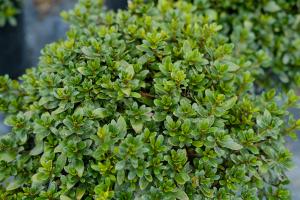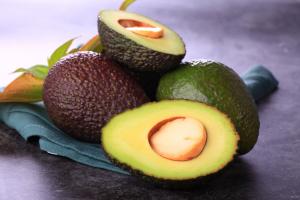Why Do You Put Epsom Salt on Tomato Plants?
Tomatoes are a beloved garden staple, providing delicious fruit for sauces, salads, and snacking. But growing healthy tomato plants takes effort and attention, especially when it comes to providing the right nutrients. One common addition to a tomato plant's diet is Epsom salt, a type of magnesium sulfate. But why do gardeners swear by this mineral supplement?
Magnesium in Epsom Salt Benefits Tomato Plants
Magnesium is a vital nutrient for all plants, but it plays an especially important role in the growth and health of tomato plants. Magnesium helps regulate the use of other nutrients, such as nitrogen and phosphorus, and aids in the production of chlorophyll. Chlorophyll is the pigment that gives plants their green color and is necessary for photosynthesis.
Epsom salt, which is composed of magnesium sulfate, is a readily available source of magnesium for plants. When tomato plants are deficient in magnesium, their leaves may turn yellow and begin to curl. Adding Epsom salt to the soil can help prevent this deficiency and promote healthy, vigorous growth.
Epsom Salt Can Improve the Flavor of Tomatoes
Not only does Epsom salt provide beneficial nutrients for tomato plants, but it may also improve the flavor of the fruit. The magnesium in Epsom salt can enhance the production of sugar in the plant, leading to sweeter tomatoes. Additionally, magnesium can improve the uptake of other minerals, such as calcium, which can also contribute to better flavor.
However, it's important to note that the flavor of tomatoes is influenced by a variety of factors, including their variety, growing conditions, and ripeness. While Epsom salt may contribute to a better flavor, it cannot guarantee it in every case.
How to Apply Epsom Salt to Tomato Plants
When using Epsom salt on tomato plants, it's important to use the correct amount and application method. Applying too much Epsom salt can cause harm to the plant, so it's best to follow recommended guidelines.
For established tomato plants, gardeners can add Epsom salt to the soil by mixing one tablespoon of salt per gallon of water and watering the plant with the mixture once a month. Alternatively, gardeners can add one tablespoon of Epsom salt to the planting hole before transplanting a seedling.
It's important to note that Epsom salt should not be used as a substitute for regular fertilization. The minerals in Epsom salt provide beneficial nutrients, but plants still require a well-rounded diet of nitrogen, phosphorus, and potassium.
In Conclusion
Epsom salt can be a useful addition to a gardener's toolbox, providing beneficial magnesium for tomato plants. It may also contribute to a better taste in the fruit. However, it's important to use Epsom salt in moderation and alongside regular fertilization. With proper care and attention, tomato plants can thrive and produce flavorful, healthy fruit for years to come.

 how many times do yo...
how many times do yo... how many planted tre...
how many planted tre... how many pine trees ...
how many pine trees ... how many pecan trees...
how many pecan trees... how many plants comp...
how many plants comp... how many plants can ...
how many plants can ... how many plants and ...
how many plants and ... how many pepper plan...
how many pepper plan...
































